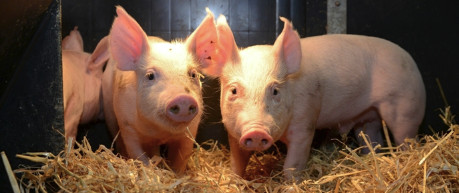Tuesday 2nd May 2017, 11:00am
Animal Science needs to be part of the solution in helping society face challenges such as population growth, global food security and environmental change, according to a leading scientist.

Professor Geoff Simm of the University of Edinburgh, who was speaking during the Hammond Lecture at the British Society of Animal Science Conference 2017, said livestock production was often part of the challenge, and animal science and innovation needs to be part of the solution.
"The challenges are urgent, massive, complex and interconnected. That means solutions will need to be inter/trans-disciplinary and systems thinking.”
"Developments in molecular biology, genetics and genomics, data science,
remote sensing and precision technology offered a range of new
opportunities."
From an economic perspective, livestock accounts for £130 billion euros annually in the EU economy.
“Global industry breeding programmes have had a major impact on the cost and environmental footprint of livestock products in industrialised countries.
In dairy cattle, we have seen financial benefits of £2.2 to 2.4 billion pounds since the 1980’s. This has also reduced the greenhouse gas intensity by 1.7 per annum in dairy cows.
Most animal science has been driven by economic demand, but going forward it needs to focus on the social and environmental aspects too. This is easy to say, but much harder to achieve. Economic, social and environmental are the three pillars of sustainability.”
Professor Simm, The University of EdinburghLivestock provide dietary products and micro-nutrients, which are vital for human development. They also provide co-products, fertiliser, transport, draught and capital and are central to livelihoods. However, the liability is over consumption can lead to obesity and disease. Then there are the welfare aspects.
From an environment point of view, livestock can use feed resources that humans can’t, such as grassland as well as supporting biodiversity. However, the liability is they can compete with humans for feed and are also emitters of greenhouse gases.
Prof Simm said the British Society of Animal Science (BSAS) had an important role helping the next generation of animal scientists rise to the challenge and draw attention to new technologies.